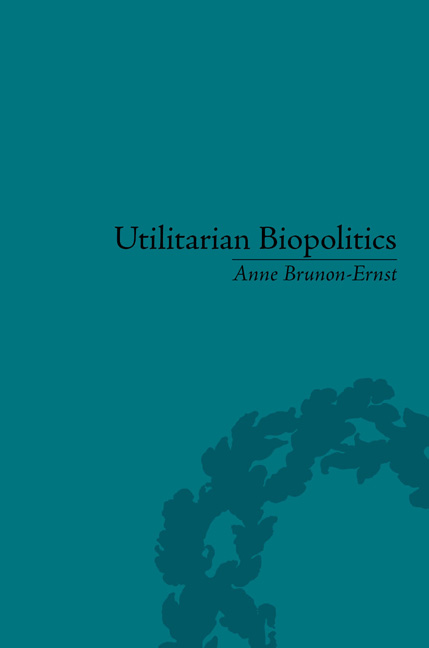Book contents
- Frontmatter
- CONTENTS
- Acknowledgements
- General Introduction
- Part I Biopolitics of Interests Introduction: From Interest to Norms
- Part II Utilitarian Conduct of Conduct Introduction: Legal Norms, Extra-Legal Norms and Utilitarian Conduct
- Part III The Biopolitical Expert Introduction: The Moralist and the Economist
- 5 Are there Biopolitical Ethics?
- 6 Political Economy as the Republic of Interests
- Epilogue: (De)Constructing Biopolitics
- Notes
- Works Cited
- Index
6 - Political Economy as the Republic of Interests
from Part III - The Biopolitical Expert Introduction: The Moralist and the Economist
- Frontmatter
- CONTENTS
- Acknowledgements
- General Introduction
- Part I Biopolitics of Interests Introduction: From Interest to Norms
- Part II Utilitarian Conduct of Conduct Introduction: Legal Norms, Extra-Legal Norms and Utilitarian Conduct
- Part III The Biopolitical Expert Introduction: The Moralist and the Economist
- 5 Are there Biopolitical Ethics?
- 6 Political Economy as the Republic of Interests
- Epilogue: (De)Constructing Biopolitics
- Notes
- Works Cited
- Index
Summary
Dans l'économie politique, le grand secret est de rien faire. Il faut l'étudier parce qu'elle est très intéressante comme science, mais plus on l'étudie, plus on voit qu'elle est malfaisante comme art.
We have then the conditions for the creation for a formidable body of legislation and an incredible range of governmental intervention to guarantee the production of the freedom needed to govern.
Introduction
While recognizing the interest of political economy as a science, that is as a stock of knowledge, Bentham denies the possibility for government to use it as an art to control the market. Government intervention in economic life is seen as having a negative impact. Foucault, on the other hand, explains the reasons why the eighteenth- and nineteenth-century consensus of laissez-faire economics was accompanied by breathtaking legal, political, medical and educational interventions. For him freedom is not a given in a government based on the transaction of the interests of collective and individual utility. It emerges thanks to the limitations, safeguards and checks imposed by government. The quotes above encapsulate the contradictions at the heart of a form of liberalism, theorized by Bentham in his economic writings, and later analysed by Foucault. The subtle interaction between economics and government, in the government rationality emerging during the period in which Bentham was writing, is presented by Foucault as still presiding over our biopolitical world.
If the quotes above highlight a position common to Bentham and Foucault, law continues to divide them.
- Type
- Chapter
- Information
- Utilitarian BiopoliticsBentham, Foucault and Modern Power, pp. 107 - 124Publisher: Pickering & ChattoFirst published in: 2014



